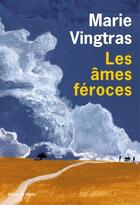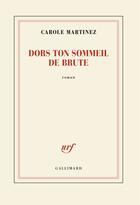-
Date de parution : 01/04/2005
-
Editeur :
Fao
-
EAN : 9789251052334
-
Série :
(-)
-
Support :
Papier
Résumé:
Eating well is vital for a healthy and active life. Most people know that we need to eat in order to have the strength to work. However, not everybody has a clear idea about precisely what it means to eat well and how this can be achieved with limited resources. The problem of eating well... Voir plus
Eating well is vital for a healthy and active life. Most people know that we need to eat in order to have the strength to work. However, not everybody has a clear idea about precisely what it means to eat well and how this can be achieved with limited resources. The problem of eating well with limited resources is a particularly important one for many people in developing countries. Poverty is a major cause of the nutritional problems found in developing countries. But malnutrition also exists where people are not poor and where they can get enough to eat.
This is clearly evident in the fact that there are two - quite opposite - main types of malnutrition. The first type is the result of insufficient intake of good-quality and safe foods. The second type is caused by an excessive or unbalanced intake of food or certain types of food. Both can be prevented by an adequate or healthy, balanced diet. To be well nourished, families need sufficient resources to produce and/or purchase enough food. They also need to understand which combinations of foods make a healthy diet and they need the skills and motivation to make good decisions on family care and feeding practices. Whether food supplies are scarce or abundant, it is essential that people know how best to use their resources to obtain a variety of safe and good-quality foods. Nutrition education plays a vital role in promoting good nutrition. It is especially important in developing countries where traditional knowledge alone often is no longer enough to deal with the new challenges of rapid and thorough economic and social changes. Many governments and non-governmental institutions make great efforts to improve people's nutrition, and nutrition education is often one way to do so. To be most effective, nutrition education must apply the latest findings of the nutrition sciences. Also, it must be carried out in a way that truly succeeds in motivating people to adopt healthy diets and lifestyles. Educational programmes need to take into account the advances made in our understanding of nutrition and behavioural change, and the curricula of programmes need to be updated accordingly. The Family Nutrition Guide is a book that can help in this educational process. It provides an up-to-date summary of the relevant nutrition information and gives many suggestions on how to share this information when working with groups of people. The overall purpose of the Family Nutrition Guide is to help health professionals in developing countries to provide more effective nutrition education by giving families the information they need to prepare nutritious and safe meals and feed each member of the family well, and by motivating people to adopt healthy eating habits. The guide is designed primarily for professionals who want to improve the feeding and nutrition of families. It may also be useful to individuals or members of a community group who want to know more about nutritious family feeding.
While the illustrations and food examples in this guide mainly reflect the situation in countries of Eastern and Southern Africa, the basic information in this book is relevant for all regions. We hope that you, the reader, will find this book useful as a technical guide and that it will help you to design new, or improve existing, nutrition education curricula and material.We also hope that it motivates you to become even more involved in nutrition education. Your opinions are important to us.
So we invite you, the user of this guide, to send us your comments on its contents, to share your experiences in its use, and to make suggestions for improving future versions. FAO is ready to collaborate with governments and institutions that want to improve their nutrition education activities. For example, FAO could help where it is necessary to adapt this Family Nutrition Guide to the needs of specific regions and/or communities.
Donner votre avis














